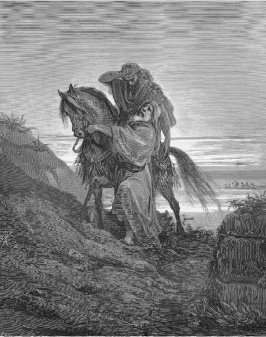New TestamentGospels and Acts of the Apostles |
What are some of the parables that appear only in the book of Luke? |
The Parable of the Good Samaritan (Luke 10:29–37). When a follower asked for clarification about the term “neighbor,” Jesus responded with this parable. In the parable, a man traveled from Jerusalem to Jericho. As he traveled, robbers overtook him and beat him, leaving him nearly dead. A priest happened by and saw the man collapsed on the side of the road. The priest walked right by. A Levite walked right by, too. When a Samaritan man walked by and saw the victim, he took pity on the man. He bandaged his wounds and put him in the care of an innkeeper. He promised to reimburse the innkeeper whatever amount of money he spent to care for the injured man. After he finished telling the parable, Jesus asked the follower who questioned him, “Now which of these three would you say was a neighbor to the man who was attacked by bandits?” The man replied, “The one who showed him mercy.” Jesus replied, “Yes, now go and do the same.” (NLT, Luke 10:36–37)
Parables of the Lost (Luke 15:8–32). When the Pharisees and scribes criticized Jesus for befriending and eating with sinners, he replied with two parables.
In one, Jesus described a woman who had ten silver coins. She lost one. She lit a lamp and searched every nook and cranny of her house looking for the lost coin. When she found it, she called her friends to rejoice with her.
In another, Jesus described a man who had two sons. The younger son asked his father for his share of the inheritance. When the father gave it to him, the younger son traveled to a distant country and squandered everything he had on dissipated living. When he spent everything he had, it happened also that a severe famine took hold of the land where he resided. He became desperate. He would have eaten pig slop gladly, but no one would give him any. He considered his position, and realized he had been wrong all along. He decided to go back to his father and beg forgiveness. The father saw his son coming down the road, and was filled with compassion. He ran to the younger, prodigal son and embraced him. The son confessed his sin. The father threw an elaborate, impromptu party for his son, and said, “For this son of mine was dead and has now returned to life. He was lost, but now is found.” The oldest son got angry because he had towed the line all along and never got a party. His father said to him, “Look, dear son, you and I are very close, and everything I have is yours. We had to celebrate this happy day. For your brother was dead and has come back to life! He was lost, but now he is found.” (NLT, Luke 15:24, 31–32)
The Parable of the Rich Man and Lazarus (Luke 16:19–31). Jesus used this parable to illustrate the perils of loving wealth and the importance of repentance before it was too late. Jesus described the relationship between a certain wealthy man and a poor man named Lazarus. The wealthy man dressed in fine clothes and ate the best food, day in and day out. Poor Lazarus, covered in sores, had nothing. Lazarus died and went to enjoy a blessed afterlife. The rich man died, and was tortured in his afterlife. The rich man saw Lazarus and Abraham standing a long way off. The rich man begged Abraham to send Lazarus to him with some water to relieve his thirst. Abraham said, “Son, remember that during your lifetime you had everything you wanted, and Lazarus had nothing. So now he is here being comforted, and you are in anguish.” The rich man begged Abraham to send Lazarus to warn his family about the mortal danger of not repenting. Abraham refused this, too, and said, “Moses and the prophets have warned them. Your brothers can read their writings anytime they want to.” The rich man persisted, saying that if someone from the dead warned them they would listen. Abraham refused still and said, “If they won’t listen to Moses and the prophets, they won’t listen even if someone rises from the dead.” (NLT, Luke 16:25, 29, 31) Here, Jesus predicted that he, too, would be ignored by some people even after he rose from the dead.

